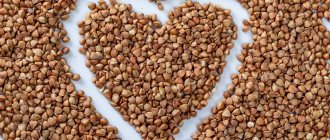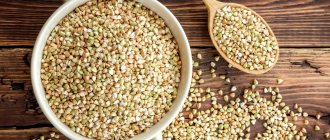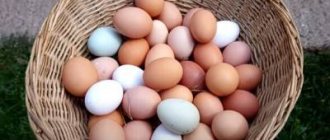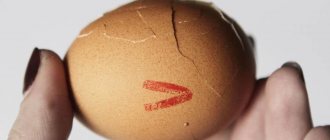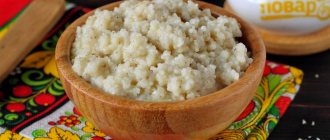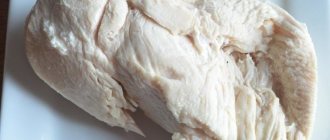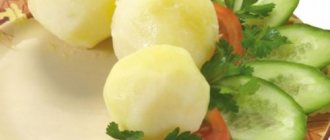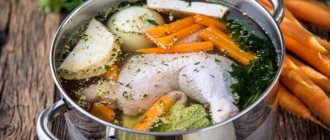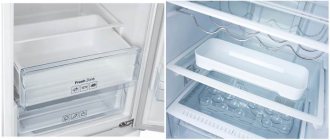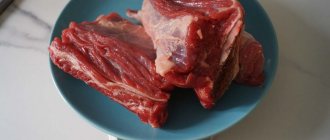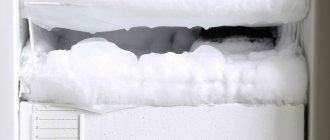One day I had to peel two dozen boiled eggs. It would seem that what is so difficult about this? But that time something went wrong - the shell stubbornly did not separate from the protein, as if it had been glued with superglue. After suffering for almost an hour, I decided at all costs to find a way that would allow me to peel eggs with one movement of my hand. And, as it turned out later, there really is such a method, and it consists of two simple steps.
How to prepare eggs?
A cold chicken egg is not suitable for boiling. If it has been in a cool place, remove it a few hours before cooking. This time will be enough for the egg to heat up. If this is not done, the egg will crack during cooking, because... the air in the air sac will expand and press on the shell.
If you don't have time to warm the eggs naturally, you can run them under running hot water for a few minutes. Try to boil only a fresh egg that is no more than 1-3 days old.
Blow into the egg
This method is suitable for people with great lung strength. To do this, you need to make holes at both ends of the egg. About the size of a coin. After this, you need to lean your mouth against one of the holes, pressing your lips tightly to the product. After that, you need to blow hard. If successful, the egg will simply fall out the other end. This method will also work if the egg was of good quality, fresh and without damage to the integrity of the shell. You also need to understand that it is also important to cook the product correctly.
How to boil quail eggs?
Quail eggs are considered healthier and nutritious. Their main advantage is that they do not crack during the cooking process. If you are wondering why eggs are difficult to peel, in this case we advise you not to use products that are 1 day old. Better prepare them for the next one.
How and how long to cook quail eggs:
- Using the traditional method, pour in and boil the eggs.
- Cook over low heat so that the water does not boil. This will make it easier to track the right time.
- If you need to soft-boil quail eggs, time for 1 minute. after the water boils. If you require a hard-boiled egg, wait 5 minutes.
- Cool in cold water so that the shell is easy to peel, and start tasting.
Reasons why eggs don't peel well
Even from the same batch, eggs are cleaned differently after boiling. The white often sticks to the shell, creating a ragged, untidy surface. Peeled eggs lose their attractive appearance and are difficult to cut.
Why are eggs difficult to peel? The reasons may be the following:
- Eggs are too fresh. In the blunt part of the egg, between the inner and outer shell membranes, there is an air chamber. In eggs that have been left for 1-2 weeks, the white dries out and the chamber expands. When cooking in the air bag, a lot of steam is generated, which helps separate the protein from the shell.
- Place eggs for boiling in cold water. A raw egg consists of a calcareous, light-proof shell (12%), white (56–58%) and yolk 30–32%. The shell performs a protective function for the white and yolk, although it is completely permeated with tiny pores. During heat treatment, hot steam enters through the pores. When heated slowly, the protein gradually coagulates and sticks to the shell.
- Peeling hot eggs. The shell is removed from hot eggs when the inner protein shell fits tightly to the shell.
- Begin shell separation from the sharp end. If you do not clean from the side of the air chamber, the shell is removed along with pieces of protein to which the subshell membrane is attached.
- Storing eggs at low temperatures. Exposure to negative temperatures disrupts the process of protein denaturation. Therefore, after freezing or long-term storage in a low-temperature refrigerator, the shells will be difficult to separate using any cooking method.
Fresh factory-produced chicken eggs are included in category “D” (dietary), and after 7 days they move into the “table” category. Store-bought table eggs are better cleaned than homemade eggs.
Causes of poor egg cleaning: Needpix
How to boil an egg without cracking?
Most housewives are faced with the fact that during cooking, a boiled egg cracks and takes on an unappetizing appearance.
How to cook eggs without cracking:
- Try to place cool eggs in cold water. If you throw them into hot water, the temperature change will cause them to crack.
- Make a small puncture in the shell using a corner. The main thing is not to damage the film, otherwise the contents of the egg will leak into the pan.
- The stove does not have a high heat. At what heat should you cook eggs? It is recommended to use medium heat so that they do not flop around in the pan too much. If you don't have a special timer, track the time on your phone or watch. If you overcook eggs for too long, the yolks may acquire an unnatural dark shade and a “rubbery” consistency.
- If you will be boiling fresh eggs, increase the cooking time by 30 seconds, no more. Otherwise, they will crack.
- Place the eggs into the pan very carefully. The slightest blow can cause a crack.
- Place the eggs in the pan in a single layer. This way there is less chance of them cracking.
- Cover the bottom of the pan with gauze. This way the eggs will not hit the bottom and will remain intact.
- Adding salt helps prevent shell cracks. Salt will also make the egg peeling process easier. The shell will be removed much easier and faster.
- If you notice a small crack in the egg, add a little vinegar to the cooking water. It will create an invisible barrier and will not allow the protein to deform.
- If a boiled egg floats to the surface, although it is not cracked, it is better not to eat it. Because it is not fresh and can harm your health.
A boiled egg is one of the most common breakfast options, especially among athletes. It saturates the body with proteins and also gives a boost of energy for the whole day. Now you know how to properly boil eggs so that they peel well and do not crack.
Cooking time depends on what degree of doneness you like best.
Shake
This method will be ideal for several eggs. Thus, you can clean at least a dozen. For this you need a saucepan. You can take the one in which the product was cooked. Next, you need to drain the water. But not completely. It is advisable to leave a couple of cm of liquid. Then you need to take the dishes in your hands and shake. But you need to do this so that the eggs inside rotate in a circle. You need to do this strongly.
The eggs will crack from hitting the walls. And the water will get under the shell and then it will become easier to clean them.
What to keep?
It is recommended to place boiled eggs without shells on paper cells and cover them tightly with a lid. Food can also be stored in plastic containers.
It is better to put everything into compartments, close the lid and place it in a refrigerator away from other products. This way the whites and yolks will not absorb foreign odors.
Such food should not be kept in a plastic bag. He accelerates its deterioration.
The nuances of preparing boiled eggs
Before the holiday, the question of preparing the necessary ingredients for salads arises. Most recipes contain eggs. If for breakfast it is quite acceptable to prepare a soft-boiled version and eat it with a spoon, then for salad mixtures you only need hard-boiled and carefully peeled eggs with intact protein.
To get the desired result, you need to start with choosing eggs. Experienced housewives know that the longer they sit in the refrigerator, the faster they clean. A freshly laid egg still has a strong bond between the shell and the inner membrane. Over the course of several days, the inner part slowly dries out, which does not at all affect the benefits and taste, but significantly facilitates the processing of the product. Shelf life in the refrigerator is 30 days. If the eggs are homemade, then even without refrigeration they will easily stand for 20 days in a box on the floor, and in a cold place for up to 90 days. If you have doubts about freshness, you need to lower the egg into water. Lost specimens float to the surface, while good ones fall to the bottom.
Trick #3: Piercing the eggs
This method is so effective that there is even a special piercing needle on the market. But you don’t have to rush headlong to the store to get it. You can use a needle or pin instead. The puncture is made in the lower part of the shell, where the air pocket is located
It is important to ensure that the puncture is not large. Otherwise, water may leak into it, which will give the egg an unpresentable appearance.
Getting ahead of the question of why this is done, let's say that the puncture removes air, thereby preventing the formation of cracks on the egg and at the same time ensuring easy cleaning. This method is also used to get rid of dents on the surface of the finished product.
Secret #3: salt
Almost everyone likes to add salt to boiled eggs. But only after they are taken out of the water and cleaned. But they don’t realize that salt is needed much earlier. Meanwhile, she is an important ally in the fight for intact, neat, perfectly cleaned eggs.
Salted cooking water makes the cleaning process much easier. True, this only works in the case of eggs that are at least five days old. In addition, salt tends to clog the small cracks that sometimes appear on the shell, thus preventing the protein from leaking out. Find out how much it is needed and what the cooking algorithm is below.
Questions and answers
What to do if the shell still doesn’t clean well?
Try removing it while holding the egg under running cold water.
Sometimes housewives pierce the blunt end before cooking. Does this help peel the shells without damaging the squirrels?
No. This is done to release air from the air chamber. As a result, the protein turns out to be ideally shaped, and not flattened at one end.
How to boil freshly laid eggs?
If you need them for a salad or other “sliced” dish, simply break them into a cooking sleeve, previously greased with oil, and cook them that way.
Even though boiling eggs is the simplest culinary process, it still requires certain knowledge and tricks. I hope you find my life hacks useful.
Unusual methods to make peeling a boiled egg easier: blowing and piercing
A complex and unusual approach to properly boiling eggs is to first pierce the shells of still raw eggs.
This method requires experience, caution and precision. The puncture is carried out with a thin sharp object: a sewing needle, an awl, the tip of a knife
The puncture is carried out on the blunt side of the egg, the depth is 1 mm
To prevent leakage, it is important not to touch the film that protects the protein.
Positive results from shell piercing are:
- Easy peeling after welding;
- Avoid cracks during cooking;
- Prevents the formation of dents on the surface of the protein. As you can see in the picture, the more aesthetic option is with a puncture (left), while without punctures, the welded product has an irregular shape with a concave end.
Blowing out a boiled egg will reduce the cleaning time to just a few seconds. The blowing algorithm is quite simple, but requires some accuracy:
- The cooled egg is cracked at both ends;
- 0.5-1 cm of shell is removed from each side;
- The sharp side is brought to the mouth and you need to blow strongly into the hole formed.
The result is that the egg slips out of the shell, which, together with the film, remains in the hands.
This method will not be effective for overcooked or already leaked eggs.
How long to boil eggs
Eggs are an ideal product in terms of nutritional value and ease of preparation. Judge for yourself, spend a little time cooking them, and the benefits will be many. Eggs contain protein and fat-soluble vitamins that the human body needs to function properly.
Boiled eggs can be consumed as an independent food, or as a component of salads and an addition to first courses (soups and borscht). It all depends on how you cook the eggs.
There are the following basic methods for preparing eggs:
- hard-boiled;
- soft-boiled;
- "in a bag."
How many minutes to boil an egg to bring it to a certain condition:
- To make the white and yolk dense and hard, boil store-bought eggs for 8–10 minutes, and homemade eggs for 13 minutes;
- so that the white becomes dense and the yolk maintains a liquid consistency, cook the eggs for 2 minutes;
- To get a creamy yolk and firm white, cook for 4 minutes.
The given time is the period after the water boils.
A few tips to make it easier to peel eggs after boiling
On the eve of Easter, all information regarding the preparation and selection of chicken eggs is especially relevant.
And today I want to tell you about the most frequently asked question. How to boil eggs so that the shells come off easily? No one wants to throw some of their eggs into the trash along with the shells removed. At the same time, you need to be sure that the resulting result is not just a random coincidence, but a proven technique, thanks to which you will always feel confident when boiling eggs. Let's get started. The first thing you should know is that if the eggs are very fresh, there is a high chance that they will not peel well. If you have your own chickens, then start laying eggs 2 weeks before Easter. And if you buy eggs at the supermarket, just buy them in advance. They definitely won’t go bad in 2 weeks, and this won’t affect the shelf life of boiled eggs in any way. I often see how after Easter people can eat boiled eggs for a week. Meanwhile, the SES does not recommend storing boiled eggs for more than 36 hours.
Now let's talk a little about cooking. You can cook eggs in an air fryer, in a double boiler, in a combi oven, or simply in a saucepan on the stove. For those who don't remember or don't know the cooking time for eggs:
By and large, the cooking procedure itself is not particularly important. The cooling procedure is much more important and there are 2 secrets here.
First secret.
The more cold water you cool the eggs after boiling, the better they will peel. Therefore, stock up on ice cubes and pour them into the water in which you will cool the eggs. The cooling time for eggs in such water is at least 5 minutes.
Second secret.
Freshly boiled hot eggs must be tapped on all sides so that the shell cracks. Only then should you fill them with ice water. To avoid burning your hands, you can use a spoon.
Follow these simple tips and your eggs will always be easy to clean.
If you have any questions, ask them in the comments, I will answer everyone.
Source
Adviсe
To extend the shelf life of the product and to avoid possible food poisoning, it is recommended to adhere to the following rules:
keep food only in the refrigerator without access to light;- use only plastic or paper containers for storage, which must be covered with a lid;
- put food separately from other products that are stored in the refrigerator;
- Do not store a boiled egg in the door compartment of the refrigerator;
- set the temperature no higher than +4 0C;
- Before putting the shelled product in the refrigerator, wipe it with a dry cloth, since pathogenic microorganisms multiply faster in a humid environment;
- after cooking, be sure to cool the white and yolk in ice water;
- Use only fresh eggs for further storage.
Cooked food can be wrapped in foil. It will extend the shelf life by a couple of hours.
It is not recommended to store eggs for a long time if the shell has been damaged during cooking. This product is best consumed immediately. Its shelf life is noticeably reduced.
Algorithm for boiling eggs
In order for the product to be tasty and the preparation to be hassle-free, you need to:
- Choose only good quality eggs. Before cooking, take them out of the refrigerator for a while to warm them up a little.
- Choose a suitable pan with a thick bottom and walls. Place the eggs tightly on the bottom so that they do not move freely around the dish.
- Pour water on top so that it covers the product by about 5 cm.
- Add a teaspoonful of regular baking soda.
- Cook over medium heat after boiling for as long as needed depending on the desired result.
- Remove the pan from the heat, drain the hot water and pour cold water over the eggs. You can change it as it warms up. You can also place the pan under a stream of cold water. Drain the water.
- Leave to cool for a few minutes.
Option 4: with a glass
The simplest and most reliable method involves using any container with hard walls. This could be a glass, a half-liter glass jar, a small plastic container, or even a tin.
Fill the selected container with about one quarter of the water, lower the egg into it and cover with a lid or palm. And then shake vigorously several times. It is advisable to do all this over the sink, since during the process water from the container may splash. Now the shell will be removed quickly and without problems.
Method one – “blowing”
If you are absolutely running out of time, and there are a couple dozen ready-made but unrefined ingredients in the shell waiting in the kitchen, if you have no idea how to quickly peel an egg (even one!), learn this method and entrust the process to the kids: believe me, they will cope and will be very satisfied.
- After knocking the tops against something hard, make two holes in the egg - from the blunt and sharp ends.
- The diameter of the “holes” should not be too large, 1 cm will be enough.
- Having placed the egg with its sharp base to your lips, blow as hard as possible - the egg will jump out of the shell through the opposite hole. Hold it with your hand and catch it so it doesn’t fly far.
How to extend the shelf life of a product?
Already boiled eggs can last a little longer in the refrigerator if you lower the temperature inside it by a few degrees. Also, the product is stored longer if it is kept in the dark.
Peeled whites and yolks last longer in the main compartment of the refrigerator. If you store them in the door compartment, the shelf life will be shortened because it creates an uneven temperature.
Boiled eggs can last up to one year if kept in the freezer. It is recommended to place only yolks there. Low temperatures do not change their taste. It is better not to put egg whites in the freezer, as they lose their taste after defrosting.
Plastic containers tightly closed with a lid will help to slightly extend the shelf life of food .
Glass of water
To do this you will need a glass with thick walls. Not too big so that you can tightly cover it with your palm, but not narrow so that the egg has enough space inside to accelerate properly.
Place the egg in a suitable container. Fill completely with water. Cover tightly with your palm. Start shaking. Strongly. So that the product hits the walls of the dish. This way, water penetrates under the cracked shell and helps clean the egg completely.
To prevent liquid from spilling, it is best to do this over a sink.
Method for cleaning quail eggs
Quail eggs are distinguished by their miniature size. Therefore, the above methods are most often ineffective for cleaning them. You will still have to tinker a lot before you can completely clean them.
However, there is a relatively long but simple method for peeling quail eggs. To do this, put them in an enamel bowl and pour in a strong vinegar solution (1 part water and 2 parts table vinegar). The eggs will have to sit in this form for about 2-3 hours. However, in the end, the vinegar will corrode the thin shell and all that remains is to remove the thin film.
You might be interested in
- How to clean an enamel pan
- How to clean pots using office glue
- Cleaning enamel pots with folk remedies
Add and split
Some say that adding eggs to a pot of water that is already boiling and letting them simmer for 12 minutes will make them easier to peel. This method is superior to the traditional method of adding eggs to a pan of cold water and then bringing them to a boil. Those who have been adding eggs to boiling water for a long time claim that thanks to this method you can peel ten eggs in just 104 seconds.
Letting hard-boiled eggs cool in a pan of ice water will make them easier to peel. But each egg needs to be “cracked” a little so that this water seeps under the shell. There will be just a little bit of liquid, but this makes it much easier to separate the shell from the protein.
